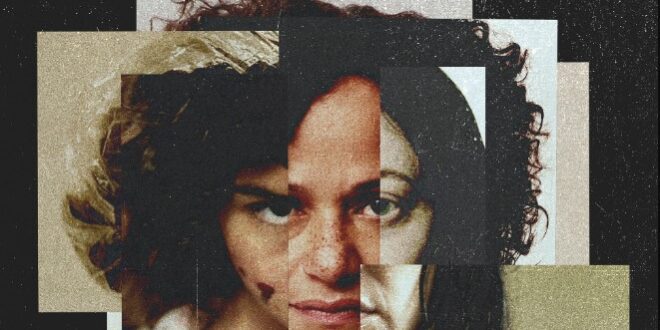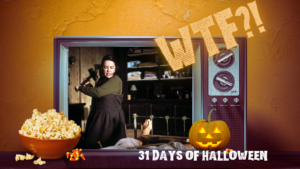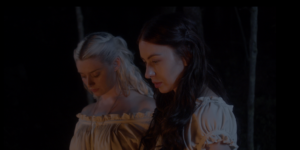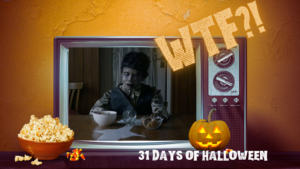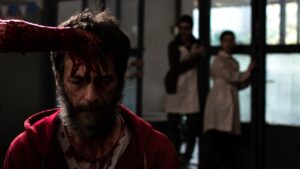Sundance hit birth/rebirth (from director Laura Moss, who co-wrote the film with Brendan J. O’Brien) is a tonal mash-up of 12 Hour Shift and The Eyes of My Mother by way of Mary Shelley’s Frankenstein. Heartbreaking, disturbing, and morbidly funny, birth/rebirth explores motherhood through a macabre lens. It not only asks what it means to be a mother, but how far mothers will go to protect their offspring. The answers it finds make birth/rebirth a wickedly clever and modern adaptation of a horror classic.
Celie (Judy Reyes) is a prenatal nurse and a single mother. One night when Celie is at work, her daughter Lila (A.J. Lister) dies unexpectedly from bacterial meningitis. After Lila’s death, the hospital can’t locate her body, but Celie spies Rose (Marin Ireland) — a disturbingly detached pathologist who spoke to Celie in the morgue earlier about her daughter — stuffing a suitcase into her trunk in the parking garage. Celie quickly tracks Rose down at her home and makes a gruesome discovery: Rose has brought Lila back to life and is tending to her as her patient. The two women join forces to keep Lila alive and hidden away, with increasingly calamitous results.
Ireland and Reyes make a striking team. Ireland’s Rose is stoic, logical, and highly transactional in all her interpersonal encounters. Her clinical demeanor is particularly disturbing — and surprisingly funny — given the monstrous lengths she goes to in her scientific endeavors. Reyes’ Celie can appear just as impassive, but there’s a deep well of emotion underneath her drive to keep Lila alive at any cost. The viewer isn’t shocked when Celie jumps right over the expected ethical qualms about what Rose is attempting and how she’s accomplishing it. It’s a second chance at a life with her young daughter, after all, and the only shocking thing is how easily the audience relates to Celie’s laser focus on doing whatever it takes to keep her baby alive.
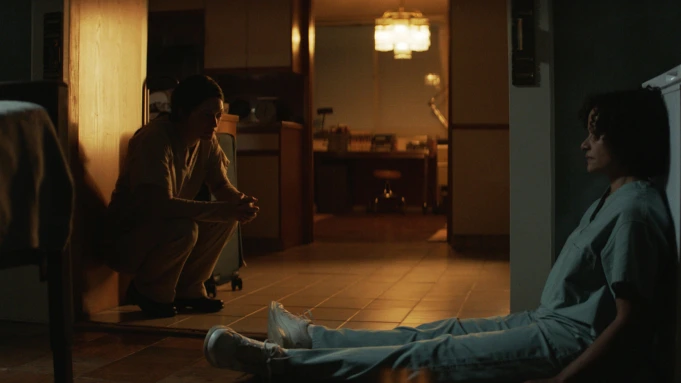
Celie’s budding jealousy as Rose takes on an increasingly maternal role with Lila adds an extra layer of suspense and unease to the already disturbing film. Though it’s occasionally visceral and gory, the emphasis on the clinical aspects of medical experimentation — an ethical question that Celie may ignore but the film never loses sight of — gives birth/rebirth a detached quality that allows the viewer to connect with its wry humor. Composer Ariel Marx has an early contender for the best score of the year: her music is moody, tense, and propulsive, expertly threading the needle of the film’s prickly tone.
The film’s ending maintains that tone, leaving the audience to reckon with birth/rebirth’s dueling portraits of motherhood in the face of loss and reclamation. The emotional weight of both Celie and Rose’s actions hang heavy, and the ethical questions of their decisions linger in the viewer’s mind. birth/rebirth is an intriguingly feminine take on the modern Frankenstein myth, unearthing new truths about creation and highlighting the anguish of motherhood and the moral dilemmas that accompany it.
